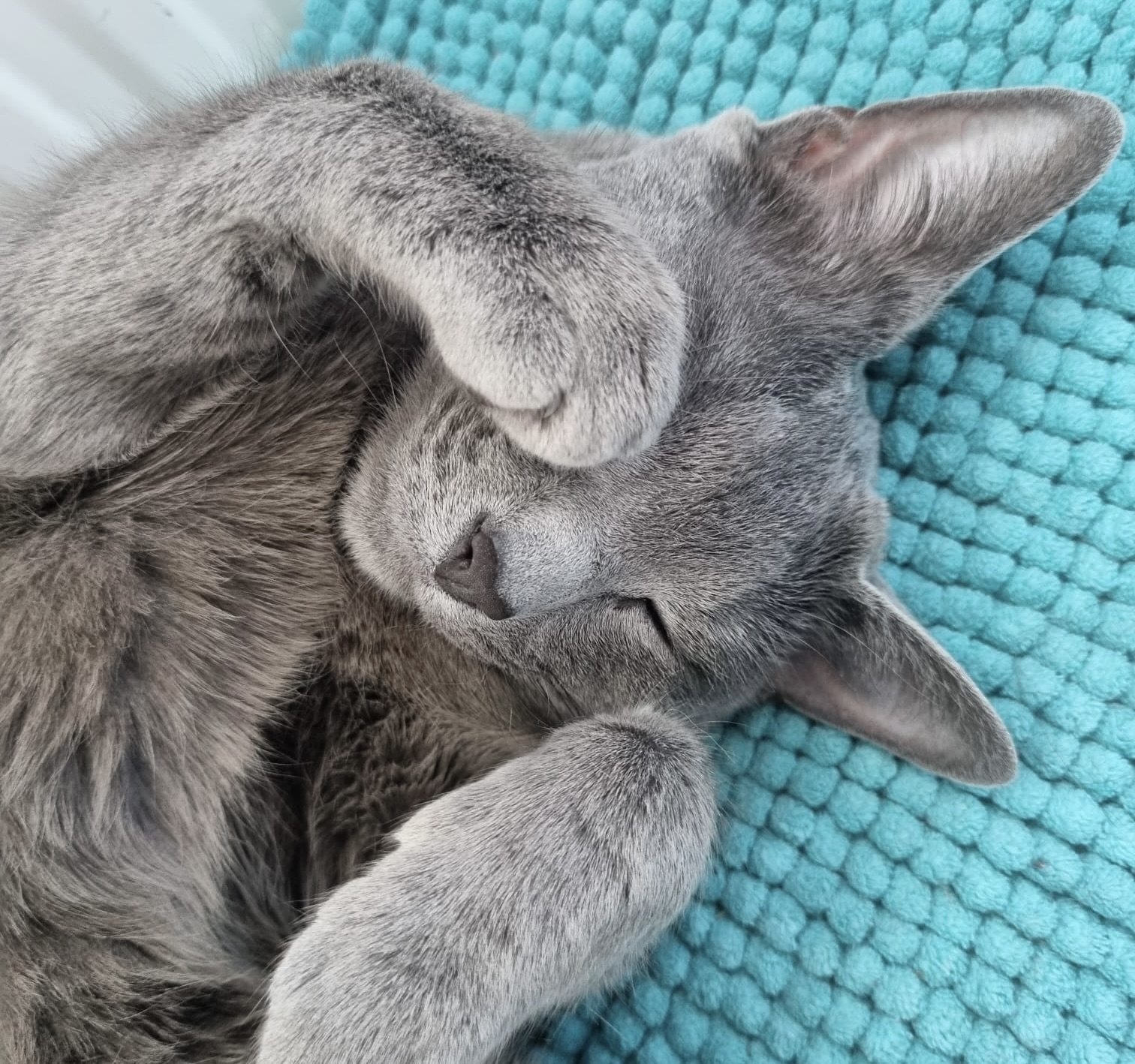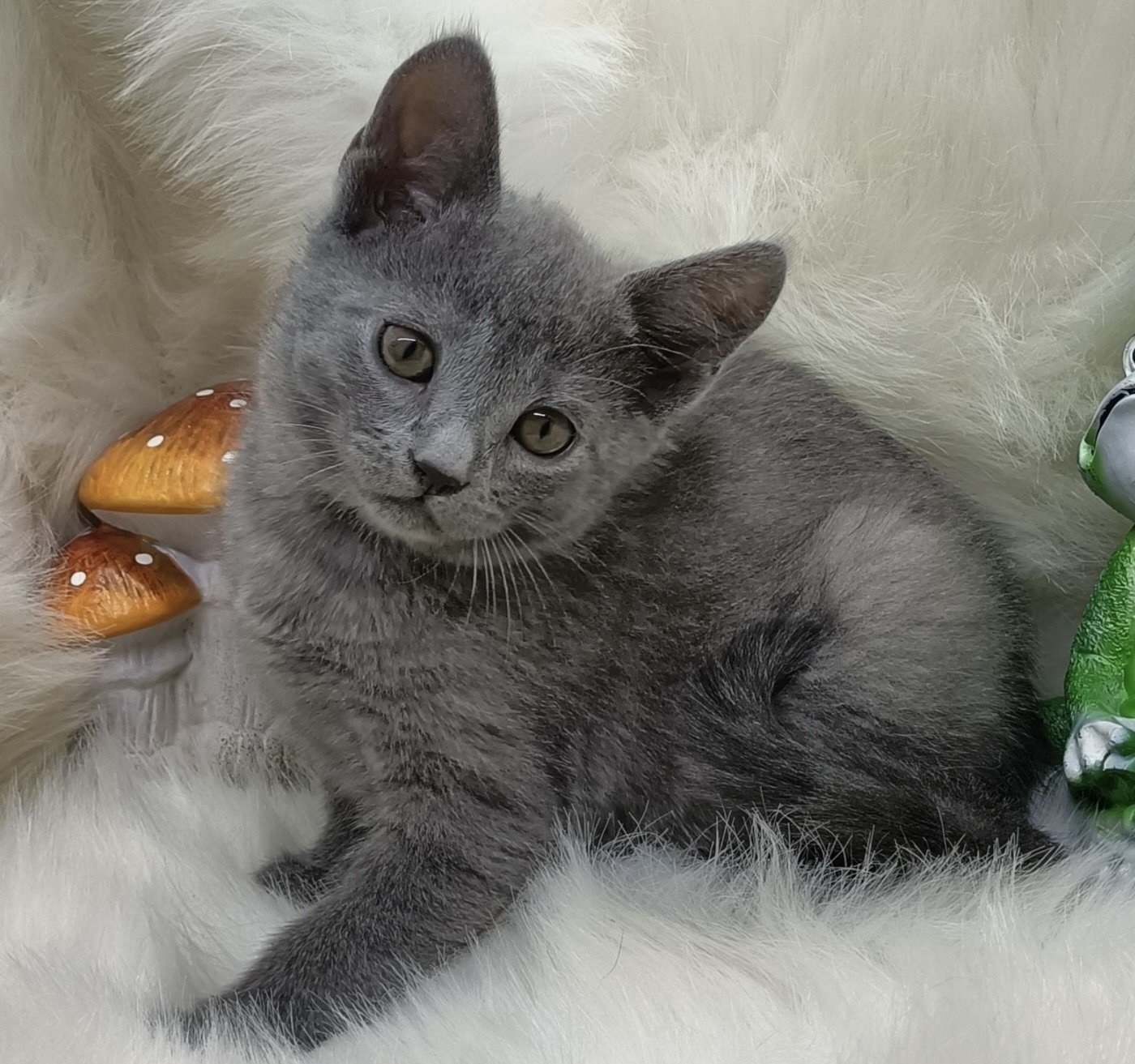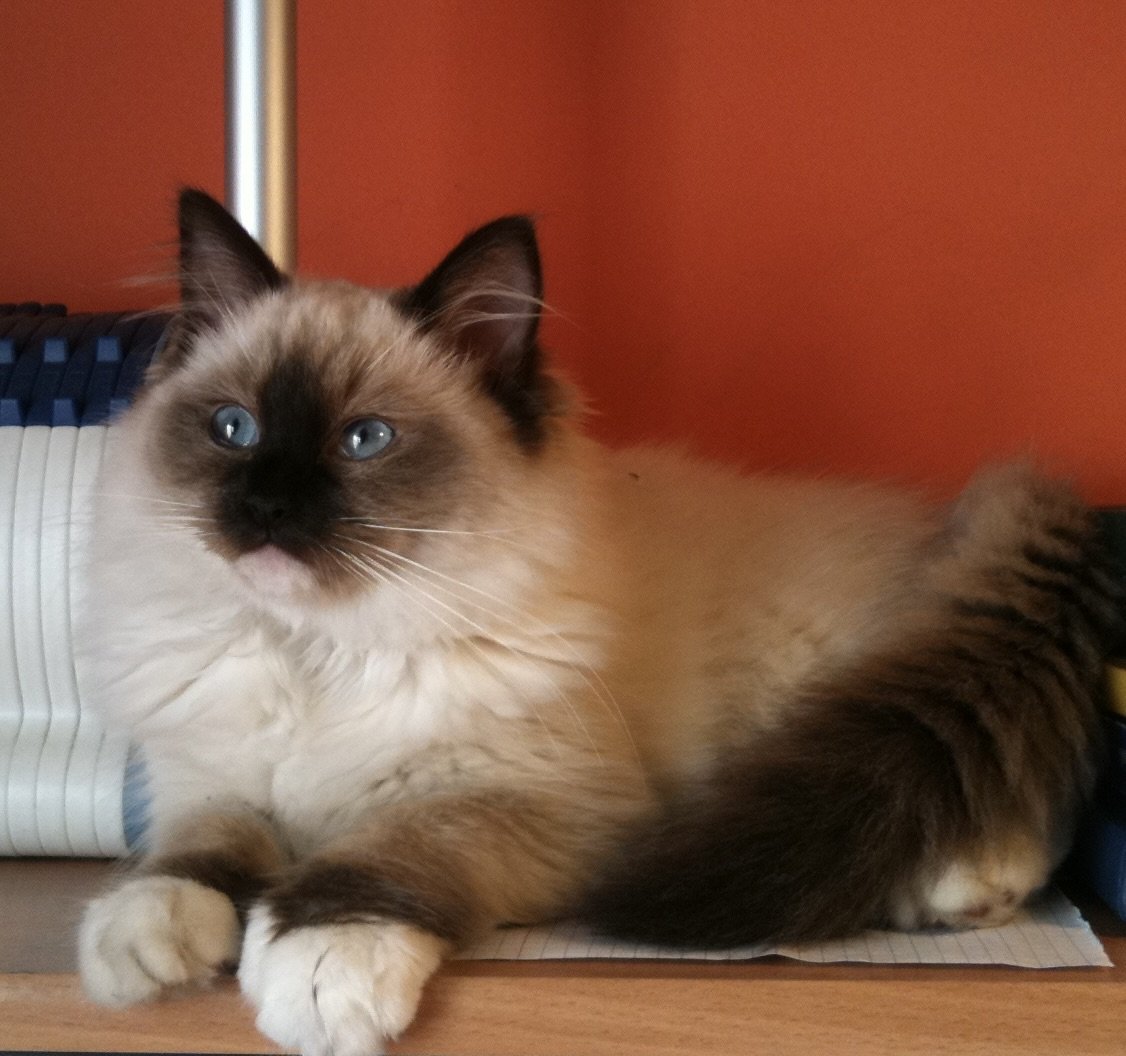
Filters
CLEAR ALLSavannahs are tall, lean, graceful cats with striking dark spots and other bold markings. They are a hybrid of a domestic cat and a medium-sized African wild cat. While classed as a domestic cat breed, they look like their ancestral source, the African Serval, but smaller in stature.
This cat breed stands out for their large pointed ears and their spotted golden, black or silver smoke coat. They are affectionate and energetic, with a remarkably long neck and legs, tall ears, and a medium-length tail. The Savannah is both uncommon and beautiful. Moreover, they are also extraordinarily graceful and well-balanced.
Savannahs are intelligent, determined cats that can sometimes be headstrong whenever their curiosity gets the best of them. So, don't be surprised if your Savannah can teach themselves to open cupboards and doors, turn on faucets, flush toilets or knock small items off of a shelf to see what happens.
Savannahs are sociable and loyal. They bond deeply with their families and human companions and are known to greet them at the door and follow them from room to room to see what they are up to. However, they are far too active to be lap cats and they enjoy their personal space. Instead, they prefer to be near their human companion rather than on them.
This cat breed is known to be a challenging yet rewarding feline companion to own. So, note that if you desire to have a low-energy cat to snuggle with you all day, think twice about purchasing a Savannah.
They have a lot of energy and require regular physical and mental stimulation. They are created by crossing an African Serval with a domestic cat and then breeding their offspring to other cat breeds such as Oriental Shorthairs, Egyptian Maus, Ocicats, and others. Savannah cats are a new breed, recognized by The International Cat Association recently in 2012.
It’s important to note if Savannah cats don't get the activity and exercise they need, they may get bored and make their own fun. Thus, they can be a little destructive and even develop unwanted behaviours around the house.
For a hardworking human companion who can keep up with this cat's needs, Savannahs make a high-spirited, lively family member with a lot of affection to give. They are an excellent choice for families with older children because they match the energy of this age range. For individuals that tend to be away most of the day to work, a companion such as a cat-friendly dog or another cat can be a great playmate for a Savannah.
Savannahs are classified as generations ranging from F1 to F4. F2, F3 and F4 Savannah cats are legal in the UK, however, they are illegal in some US states.
Savannahs are tall, lean, graceful cats with striking dark spots and other bold markings. They are a hybrid of a domestic cat and a medium-sized African wild cat. While classed as a domestic cat breed, they look like their ancestral source, the African Serval, but smaller in stature.
This cat breed stands out for their large pointed ears and their spotted golden, black or silver smoke coat. They are affectionate and energetic, with a remarkably long neck and legs, tall ears, and a medium-length tail. The Savannah is both uncommon and beautiful. Moreover, they are also extraordinarily graceful and well-balanced.
Savannahs are intelligent, determined cats that can sometimes be headstrong whenever their curiosity gets the best of them. So, don't be surprised if your Savannah can teach themselves to open cupboards and doors, turn on faucets, flush toilets or knock small items off of a shelf to see what happens.
Savannahs are sociable and loyal. They bond deeply with their families and human companions and are known to greet them at the door and follow them from room to room to see what they are up to. However, they are far too active to be lap cats and they enjoy their personal space. Instead, they prefer to be near their human companion rather than on them.
This cat breed is known to be a challenging yet rewarding feline companion to own. So, note that if you desire to have a low-energy cat to snuggle with you all day, think twice about purchasing a Savannah.
They have a lot of energy and require regular physical and mental stimulation. They are created by crossing an African Serval with a domestic cat and then breeding their offspring to other cat breeds such as Oriental Shorthairs, Egyptian Maus, Ocicats, and others. Savannah cats are a new breed, recognized by The International Cat Association recently in 2012.
It’s important to note if Savannah cats don't get the activity and exercise they need, they may get bored and make their own fun. Thus, they can be a little destructive and even develop unwanted behaviours around the house.
For a hardworking human companion who can keep up with this cat's needs, Savannahs make a high-spirited, lively family member with a lot of affection to give. They are an excellent choice for families with older children because they match the energy of this age range. For individuals that tend to be away most of the day to work, a companion such as a cat-friendly dog or another cat can be a great playmate for a Savannah.
Savannahs are classified as generations ranging from F1 to F4. F2, F3 and F4 Savannah cats are legal in the UK, however, they are illegal in some US states.



While a Savannah may look small and cute as a kitten, these felines get big! As adults, they can weigh anything between 12 and 25 pounds, and they will grow to about 20-22 inches long and 14-17 inches tall. Their size and weight depend on their generation, though, with later generations typically being smaller.
Savannahs have a slim but athletic build with long legs and well-defined muscles. They have a short to medium-length spotted coat, which will be either black and brown, black and silver or black-smoke.
Savannahs have a small head and a long neck. Their ears are large, round and erect, and their eyes are almond-shaped with a faint hood and a dark tear duct line. Savannahs live just as long as other domestic felines, between 12 and 20 years, depending on the quality of their care.
When many people think of a Savannah, one of the first questions that come to mind is, “are they dangerous?” Of course, being a new cat breed coming from African cat descendants, it’s normal to have this concern.
It’s important to note that different generations of Savannah cats can be bred and sold. First-generation (F1) Savannahs are technically half-wild, whereas later generations, such as F2, F3, and F4, are more domesticated. With each new generation, the Savannah becomes tamer, easier to care for, and less likely to act dangerously or aggressively.
In Great Britain, Savannah ownership is legal for F2, F3 and F4 generations. However, only people with a Dangerous Wild Animal Licence can own the first-generation Savannah. The breed is banned in some US states, or only F4 and later generations are legal.
Savannah cats develop solid bonds with their owners and are as loving and affectionate as other domestic cats. They always like to be in your presence and make loyal companions that will follow you around the house. Some Savannahs can be fearful of strangers, whereas others are more confident. The key is to ensure your Savannah kitten gets plenty of exposure to different humans from an early age.
Savannahs are highly intelligent and curious kitties. They can learn to open cupboards and doors, so you’ll need to find a good hiding place for their food! You can also train your Savannah to walk on a leash or even to fetch. These clever kitties need new challenges regularly and frequent exercise, so taking them for walks on a leash can be a good idea.
Savannahs require a lot of attention and can be pretty demanding. So, if you don’t have much free time and are not home regularly, a Savannah is not a good choice. Likewise, they can be an overwhelming pet for those becoming kitten parents for the first time.
It’s a misconception that Savannah cats are dangerous. These kitties are not savages in the slightest, but they can be destructive to their surroundings if they do not get the attention and playtime they require. Therefore, a Savannah is best suited to owners who have plenty of free time, do not work full time away from home, and have experience with cats.
Savannahs also need a larger living space than other domestic cats, so they are not suitable for those who live in small apartments. In addition, they love to jump and can leap up to 8 feet high thanks to their long legs. Therefore, standard cat trees may not be sufficient for a Savannah, so it’s best to fit some elevated platforms for them to explore and perch on.



Their stories
We love happy endings. Discover stories of pets who found their beloved family with the help of The Pedigree Paws <3.

Neo
Russian Blue
We had some concerns purchasing a kitten online but our experience with The Pedigree Paws was great. They connected us with Caroline, the Russian Blue breeder and we had many conversations and received multiple pictures and videos. She answered to all our questions.
The Pedigree Paws verified for us all the vaccinations and health checks to make sure our new kitten was 100% healthy.
Thank you for all your help The Pedigree Paws! Highly recommended!

Jack
Miniature Dachshund
One of the reasons I was hesitant to order a puppy from The Pedigree Paws is because I live in Spain. However they connected me with a very good FCI breeder in Barcelona.
He showed me all the health documents of both parents, their pedigree and answer to all my questions. I am so happy they helped me to find a healthy puppy as finding one by myself was very overwhelming. Contacting The Pedigree Paws was the best decision and I highly recommend them to everybody!

Stitch
Chartreux
From the kittens's selection to the arrival of our Chartreux kitten, The Pedigree Paws was there to assist us. We had great experience with them, and they breeder Alexandra from France with whom they connected us and from whom we got our kitten from. They are very prompt in answering our initial and follow-up questions while our kitten was in transit. Very reliable and trustworthy!
Thank you so much for all your help. We are very happy with our new family member. We will definitely recommend it to all our friends.
Athena
Chihuahua
It's been a few months since we decided to find a Chihuahua puppy to join our family, however we had issues finding a good breeder.
We contacted The Pedigree Paws and they connected us with a very unique breeder in Greece. Many videos and pictures were shown, the breeder shared with us the proof of vaccinations, deworming and her 5 generation pedigree. We were fortunate as George, the breeder was able to deliver the puppy to us personally. We are very pleased with our beautiful Athena. Thank you, The Pedigree Paws, for being truthful and transparent.
Thor
Abyssinian
I feel wonderful having help from The Pedigree Paws finding the dream Abyssinian kitten I was looking for. Thor is the absolute dream! The Pedigree Paws team was really patient and responsible in everything. Lovely experience! They replied to every questions, requirements, and information I ask about the kitten.
Fin
Chihuahua
Thank you for finding for me such a beautiful Chihuahua puppy! I love him so much from the minute I saw him. He changed my world.
Kate, from The Pedigree Paws assisted me through the whole process informing me about everything from health checks to arranging a Pet Nanny to transport Fin directly to my door. So thankful that the experience went so well! I love my Fin.

Emi
Ragdoll
I have always wanted a Ragdoll kitten as it was my dream cat breed, but didnt know how to find one as heard a lot about kitten farms and bad breeders. I reached out to The Pedigree Paws and they were very accommodating and transparent from the start. They offered me few kittens from their list of breeders and when I saw Emi I knew she was the one! We went through the kitten's parents DNA testing as for me that was a priority to have a kitten free from genetic disorders. We sealed the deal and now I have the best kitten I could dream of! Thank you very much for all your help
Shima
Russian Blue
I really wanted a Russian Blue kitten, but was very nervous getting one after reading horror stories about scammers on the Internet. I had my first call with Natalia, from The Pedigree Paws and with her help I was able to connect with the breeder, that I knew I could trust. I am very lucky to have now Shima, she is an absolute joy to live with.
Need some help?
Contact us to speak to our friendly advisor, who will gladly help you find your dream pet!



We are registered in England and Wales under registration number 12568840,
and our registered office is at 58-60 Kensington Church Street, W8 4DB London, England.
© 2023 The Pedigree Paws